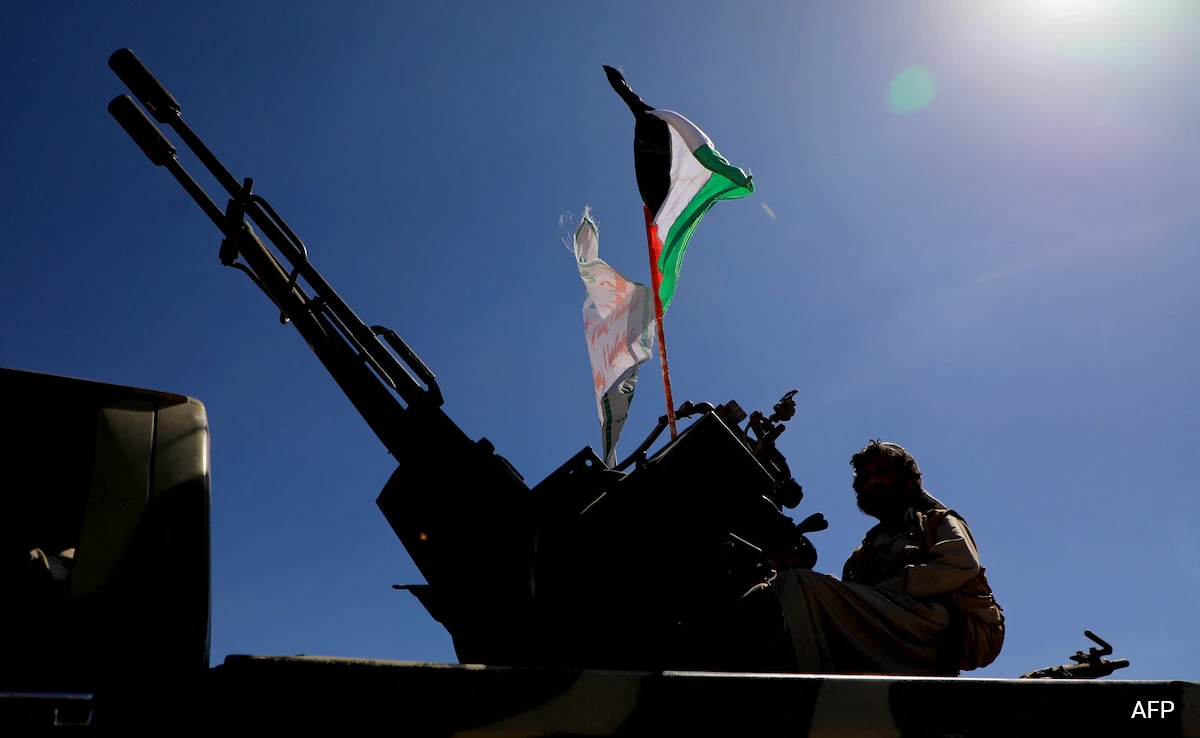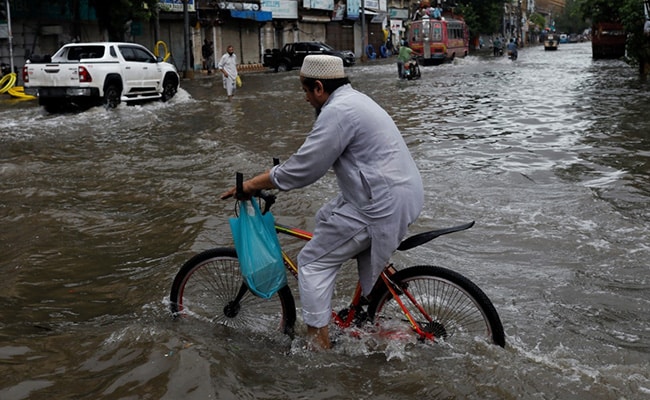
The Houthis said their attack was in solidarity with the Palestinians amid Israeli attacks on Gaza. (document)
Washington:
The United States and Britain launched strikes against 36 Houthi rebel targets in Yemen following deadly attacks on U.S. forces last weekend, a day after the United States took major action against groups linked to Iran.
Saturday night’s strikes hit underground weapons storage facilities, missile systems, launchers and other facilities used by the Houthis to attack shipping in the Red Sea, the Pentagon said, adding that the attacks targeted 13 locations across the country.
It is the latest blow in a conflict that has spread to the Middle East since October 7, when the Palestinian group Hamas stormed into Israel from the Gaza Strip, sparking a war and attracting a range of armed groups backed by Tehran.
Residents said the airstrikes shook buildings in Houthi-controlled Sanaa. The group’s military spokesman Yahya Saraya said U.S. attacks “will not proceed without response and consequences.” The group did not announce any casualties. Houthi media described the attacks as the “most violent” yet.
The attack in Yemen is linked to ongoing U.S. retaliation, a week after Iranian-backed operatives launched a drone strike on a Jordanian outpost that killed three U.S. soldiers.
On Friday, the United States carried out its first wave of retaliatory actions, attacking more than 85 targets in Iraq and Syria linked to Iran’s Islamic Revolutionary Guard Corps (IRGC) and the militias it supports, reportedly killing nearly 40 people.
The violence heightened fears of further escalation. Iran has so far avoided taking any direct role in the conflict, although it supports groups from Syria, Iraq, Yemen and Lebanon.
Mahjoob Zweiri, director of the Center for Gulf Studies at Qatar University, does not expect Iran’s approach to change even after the latest U.S. attacks.
“They are keeping their enemies at bay and away from their borders. They are not interested in any direct military confrontation that could lead to attacks on their cities or homeland. They will maintain the status quo,” he told Reuters.
Iran’s foreign ministry said recent attacks on Yemen were “a blatant violation of international law by the United States and the United Kingdom” and warned that the continuation of such attacks was a “worrying threat to international peace and security.”
The Pentagon has said it does not want war with Iran and does not believe Tehran wants one. U.S. Republicans have been pressuring Democratic President Joe Biden to strike directly at Iran.
Houthis say they will not be intimidated
The Houthis, who control large swathes of Yemen, said their attacks were in solidarity with the Palestinians as Israel attacks Gaza. But the United States and its allies view them as indiscriminate and a threat to global trade.
Major shipping lines have largely abandoned the Red Sea route in favor of longer routes around Africa. That raises costs and fuels worries about global inflation while also depriving Egypt of vital foreign revenue from the use of the Suez Canal.
Experts say Biden’s emerging strategy for Yemen is aimed at weakening the Houthis but does not seek to defeat the group or directly attack Iran, the Houthis’ main sponsor.
The strategy, which combines limited military strikes and sanctions, appears aimed at punishing the Houthis while trying to limit the risk of wider conflict in the Middle East.
The United States has launched more than a dozen attacks on Houthi targets in the past few weeks.
Houthi spokesman Saraya said in a statement on social media that the group would continue to move forward.
“These attacks will not deter us from our moral, religious and humanitarian stance in support of the resilient Palestinian people of the Gaza Strip,” Sarea said.
Just hours before the latest wave of sea and air strikes, U.S. Central Command issued a statement detailing other, more limited strikes over the past day, including hitting six cruise missiles that the Houthis were preparing to launch at ships in the Red Sea.
At around 4 a.m. (0100 GMT) on Sunday, the U.S. military also hit a Houthi anti-ship cruise missile that was about to be launched.
Oman’s concerns
“This is not an escalation,” British Defense Secretary Grant Shapps said. “We have successfully targeted launchers and storage sites involved in Houthi attacks and I believe our latest attacks have further weakened the Houthi capabilities.”
The United States said Sunday’s attack was supported by Australia, Bahrain, Canada, Denmark, the Netherlands and New Zealand. In addition to missile capabilities, the strikes also targeted drone storage and operating sites, radars and helicopters, U.S. Central Command said.
The Houthi armed forces said that the United States and Britain conducted a total of 48 air strikes in Yemen, 13 of which targeted the capital Sanaa and Sanaa province. Another 11 attacks occurred in Taiz governorate and nine attacks in Hodeidah governorate.
Oman’s Foreign Minister Badr bin Hamad bin Hamoud Al Busaidi said: “Oman is seriously concerned about the continued escalation of the situation in the region.”
In a statement, he criticized the effectiveness of U.S. retaliatory strikes in Iraq and Syria, noting that “such actions undermine the region’s security, stability and efforts to address challenges such as violence and extremism.”
(Except for the headline, this story has not been edited by NDTV staff and is published from a syndicated feed.)
Follow us on Google news ,Twitter , and Join Whatsapp Group of thelocalreport.in



